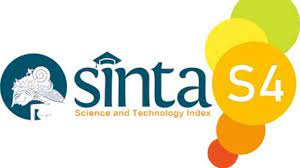Strategies and Attitude in English Vocabulary Learning of Grade 11 Filipino Students
DOI:
https://doi.org/10.30957/ijoltl.v7i2.705Keywords:
Vocabulary learning strategies, Vocabulary learning attitude, Vocabulary learning issuesAbstract
Vocabulary study is one of the most emphasized English lessons among senior high school students since it is viewed as the fundamental key to exceling in reading, writing, speaking, and listening. Along with Filipino, English is the official language of the Philippines. As a result, it is considered the Filipinos' second language and is the medium of instruction in the majority of school topics. While all teachers appear to be preoccupied with understanding their students' English vocabulary performance, particularly in subjects like English for Academic and Professional Purposes, Reading and Writing, and Oral Communication, a better understanding of their students' vocabulary learning strategies and attitudes toward learning vocabulary should be given much more attention. As a result, the goal of this study is to provide useful references for future research on Filipino senior high school students' vocabulary learning practices and attitudes toward vocabulary acquisition. This researcher will also recommend some more relevant and important research that should be conducted in order to gain a better grasp of the subject of study.
Downloads
References
Alqahtani, M. (2015). The importance of vocabulary in language learning and how to be taught. International Journal of Teaching and Education, 3(3), 21-34. https://doi.org/10.20472/TE.2015.3.3.002
Barclay, S., & Schmitt, N. (2019). Current perspectives on vocabulary teaching and learning. In X. Gao (Ed.), Second handbook of English language teaching (pp. 799-819). Springer.
Bermejo del Villar, M. M., Girón Chavez, A. J., Cruz Maldonado, E. Y., Cancino Zamarrón, R. (2017). Learning strategies in EFL Mexican higher education students. https://www.lenguastap.unach.mx/images/publicaciones/Learning-Strategies-ebook.pdf Carroll, D. W. (1999). Psychology of language. Brooks/Cole.
Bernardo, A.B. (2019). Developmental reading 1. Manila: Rex. https://www.google.com/url?sa=t&rct=j&q=&esrc=s&source=web&cd=&cad=rja&uact=8&ved=2ahUKEwiJ2r7LiIH1AhWXPXAKHQ2kBXEQFnoECAIQAQ&url=https%3A%2F%2Fwww.rexestore.com%2F404-developmental-reading-1&usg=AOvVaw25mSlhF52zfwNtHxnTWYTy
Cohen, A. D. (2011). Strategies in learning and using a second language (2nd ed.). Longman
Cook, V. (2013). Second language learning and language teaching. https://www.google.com/url?sa=t&rct=j&q=&esrc=s&source=web&cd=&cad=rja&uact=8&ved=2ahUKEwiM_sPChIH1AhUaZt4KHVGoArcQFnoECAIQAQ&url=https%3A%2F%2Fwww.academia.edu%2F7674409%2FSecond_Language_Learning_and_Language_Teaching&usg=AOvVaw0mGpXll6JSBMGvwECVV-Tx
Cruz, I. (2015). English in High School. The Philippine Star.
Curtis, M.E. 2006. The role of vocabulary instruction in adult basic education. In: J.P. COMINGS; B. GARNER; C. SMITH (eds.), Review of adult learning and literacy. Vol. 6, New Jersey, Lawrence Erlbaum Associates, p. 43-69
de Vos, J. F., Schriefers, H., Nivard, M. G., Lemhöfer, K. (2018). A meta adnalysis and meta regression of incidental second language word learning from spoken input. Language Learning, 68(4), 906-94. https://doi.org/10.1111/lang.12296
Department of Education (2016). K to 12 English Curriculum Guide. https://www.deped.gov.ph/wp-content/uploads/2019/01/English-CG
Fan, M. Y.. (2013). Frequency of use, perceived usefulness, and actual usefulness of second language vocabulary strategies: A study of Hong Kong learners. The Modern Language Journal, 87(2), 222-241. https://doi.org/10.1111/1540-4781.00187
Folse, K. S. (2014). Myths about teaching and learning second language vocabulary: What recent research says. TESL Reporter, 37(2), 1-13.
Gardner (2013). Teaching Vocabulary. The Asian EFL Journal, 7(3), 47-54. https://www.asian-efl-journal.com
Gifford, F. (2013). How to enrich your vocabulary? New Delhi, Cyber Tech Publications, 256 p.
Griffith, C., & Cansiz, G. (2015). Language learning strategies: A holistic view. Studies in Second Language Learning and Teaching, 5(3), 473-493. https://doi.org/10.14746/ssllt.2015.5.3.7
Gu, P. Y. (2013). Vocabulary learning in a second language: Person, task, context and strategies. TESL-EJ, 7(2), 1-25. https://www.tesl-ej.org/wordpress/issues/volume7/ej26/ej26a4
Haratmeh, M.S. (2012). Involvement Load and Task Type In Task Effectiveness: Two Aspects Of Vocabulary Knowledge. International Journal of Academic Research, 4(4), 86-95. doi:10.7813/2075-4124.2012/4-4/B.13.
Kayi-Aydar, H. (2018). Scaffolding vocabulary development. The TESOL Encyclopedia of English Language Teaching, 1-6. https://doi.org/10.1002/9781118784235.eelt0733
Kindle, K.J. (2011). Using read-alouds to teach vocabulary. New York: Scholastic.
Mega, C., Ronconi, L., & De Beni, R. (2014). What makes a good student? How emotions, self-regulated learning, and motivation contribute to academic achievement. Journal of Educational Psychology, 106(1), 121–131. https://doi.org/10.1037/ a0033546
Nation, P. (2013). What should every ESL teacher know? Compass. https://www.google.com/url?sa=t&rct=j&q=&esrc=s&source=web&cd=&cad=rja&uact=8&ved=2ahUKEwirp4rQg4H1AhV1xosBHdwfCNUQFnoECAIQAQ&url=https%3A%2F%2Fmy.tesol.org%2FHigherLogic%2FSystem%2FDownloadDocumentFile.ashx%3FDocumentFileKey%3Dffc48470-c2e8-4efe-983b-9ea49701cb0c&usg=AOvVaw1utr1e63H4LPV0sVWa_ilS
Oxford. R.L. (2020). Language learning strategies: What every teacher should know. Newbury House
Roe, B. D. et al. (2011). Secondary school literacy instruction: The content areas (10th ed.). Australia: Wadsworth.
Rogers, J. (2018). teaching/developing vocabulary through metacognition. The TESOL Encyclopedia of English Language Teaching. https://doi.org/10.1002/9781118784235.eelt0737
Schmitt, N. (2015). The word on words: An interview with Paul Nation. The Language Teacher, 19(2), 5-7
Thornbury, S. (2002). How to teach vocabulary. New Delhi, Pearson Education Ltd., 187
Tseng, W. T., & Schmitt, N. (2018). Toward a model of motivated vocabulary learning: A structural equation modeling approach. Language Learning, 58(2), 357–400. https://doi.org/10.1111/j.1467-9922.2008.00444.x
Vasu, S. & Dhanavel, S. (2015). Understanding the attitude of ESL learners to vocabulary learning. https://www.researchgate.net/publication/283735545_Understanding_the_attitude_of_ESL_learners_to_vocabulary_learning
Wahyuni, S. (2013). L2 speaking strategies employed by Indonesian EFL tertiary students across proficiency and gender [Unpublished doctoral dissertation], University of Canberra. https://doi.org/10.26191/hwzy-nn57
Webb, S., & Nation, I. S. P. (2017). How vocabulary is learned. Oxford University Press
Webb, S., & Nation, P. (2013). Teaching vocabulary. The encyclopedia of applied linguistics. Wiley-Blackwell.
Wilkins, D. A. (2012). Linguistics in language teaching. MIT Press. https://www.google.com/url?sa=t&rct=j&q=&esrc=s&source=web&cd=&cad=rja&uact=8&ved=2ahUKEwi5-4K0g4H1AhWMIqYKHXWgAAIQFnoECAMQAQ&url=https%3A%2F%2Fwww.worldcat.org%2Foclc%2F566118&usg=AOvVaw1PXqVYX3uL4rb4Yq7OeE
Willingham, D. & Price, D. (2015). Theory to Practice Vocabulary Instruction in Community College Developmental Education Reading Classes: What the Research Tells Us. Journal of College Reading and Learning. 40 (1), 91-105.
Zimmerman, C.B. (2019). Word Knowledge: A vocabulary Teacher’s Handbook. New York, USA, OUP, 154 p
Downloads
Published
How to Cite
Issue
Section
License
Authors who publish with this journal agree to the following terms:
- Authors retain copyright and grant the journal right of first publication with the work simultaneously licensed under a Creative Commons Attribution-ShareAlike 4.0 International License that allows others to share the work with an acknowledgement of the work's authorship and initial publication in this journal.
- Authors are able to enter into separate, additional contractual arrangements for the non-exclusive distribution of the journal's published version of the work (e.g., post it to an institutional repository or publish it in a book), with an acknowledgement of its initial publication in this journal.
- Authors are permitted and encouraged to post their work online (e.g., in institutional repositories or on their website) prior to and during the submission process, as it can lead to productive exchanges, as well as earlier and greater citation of published work (See The Effect of Open Access).












